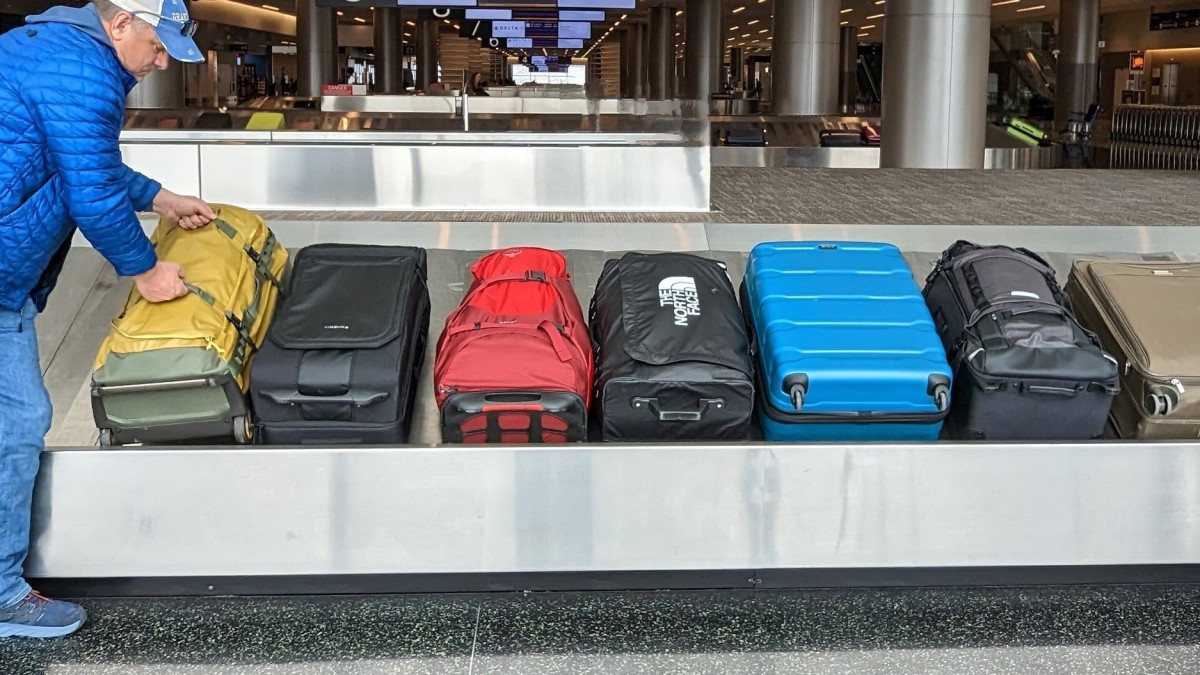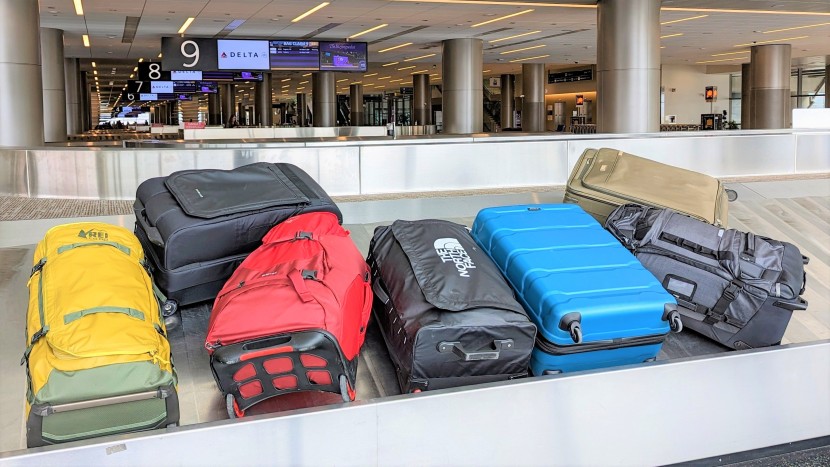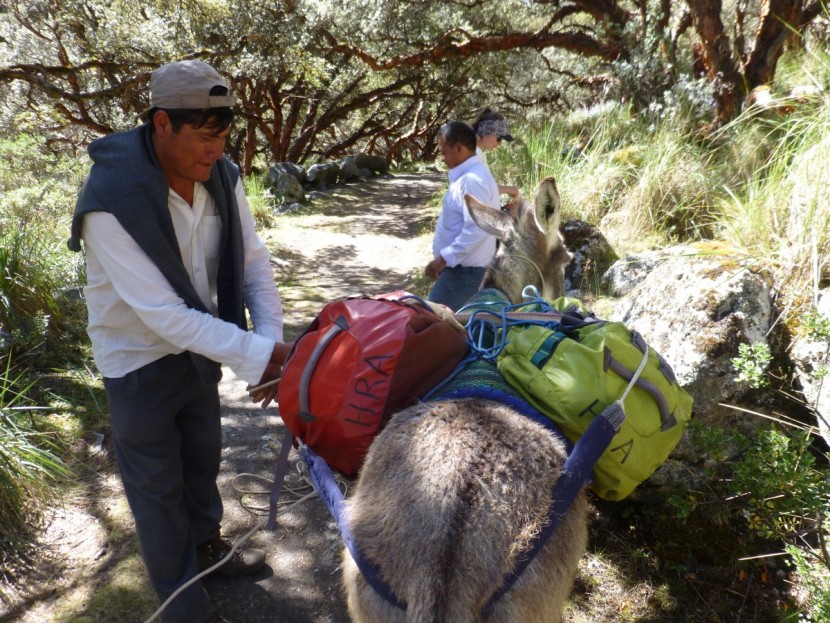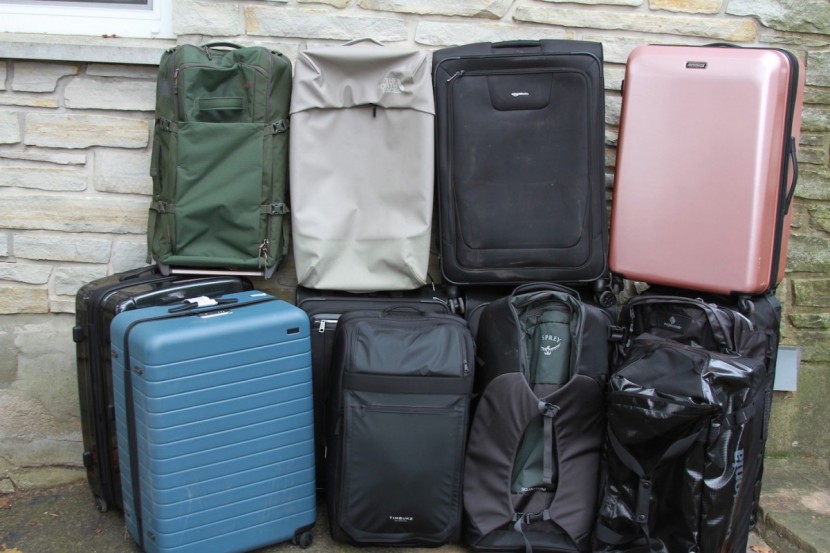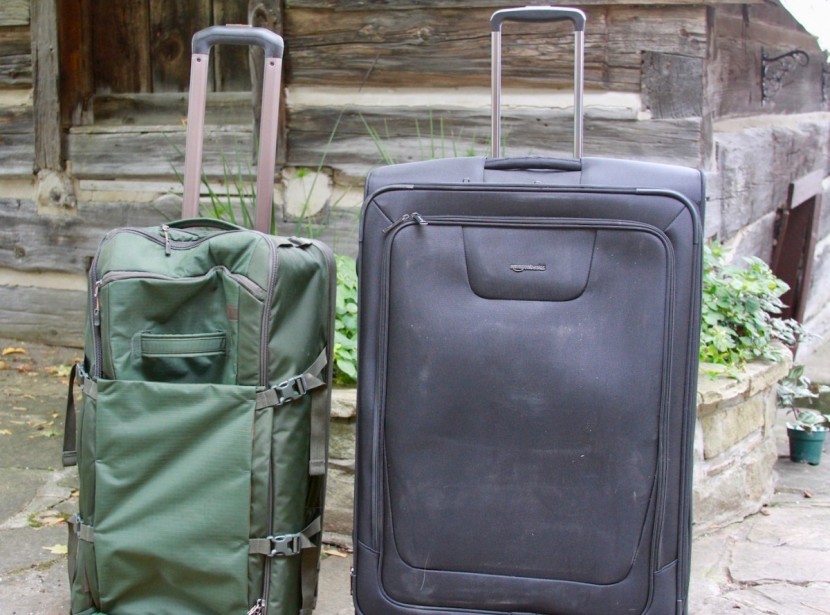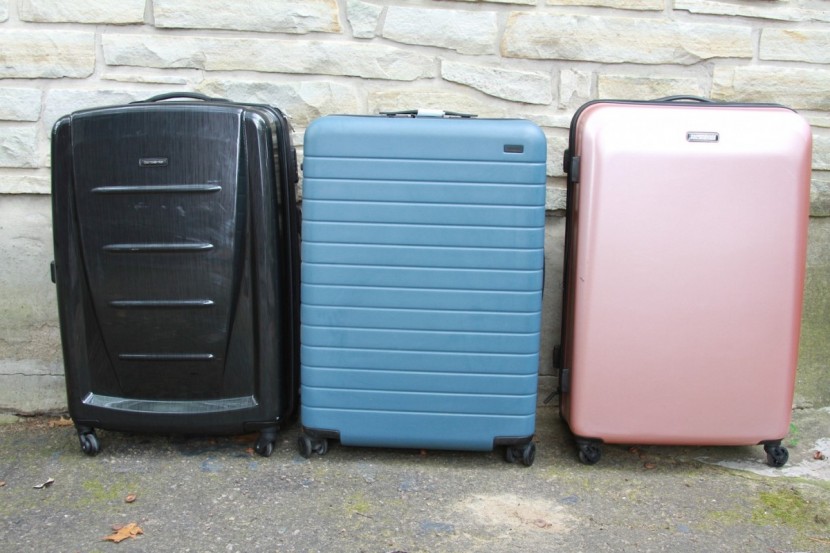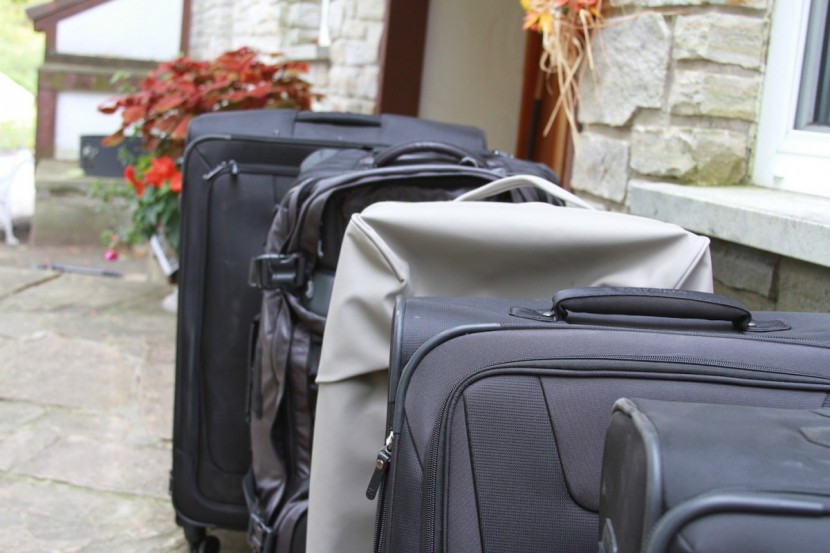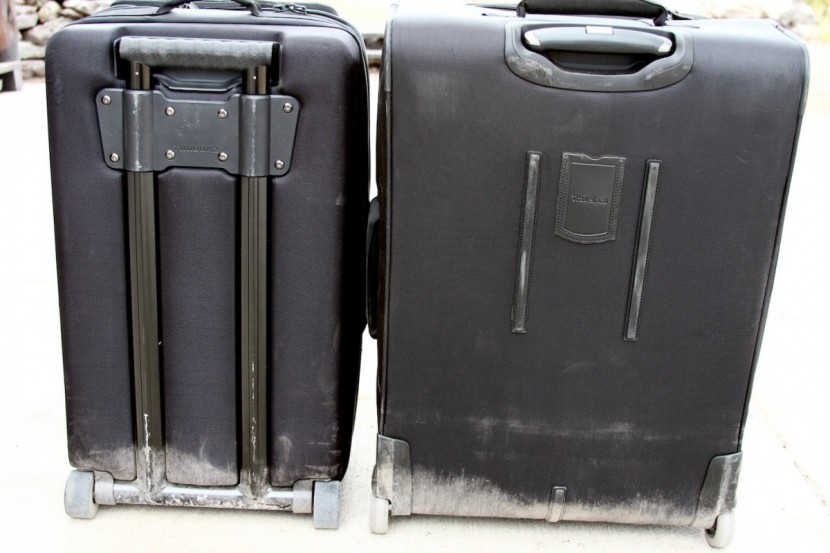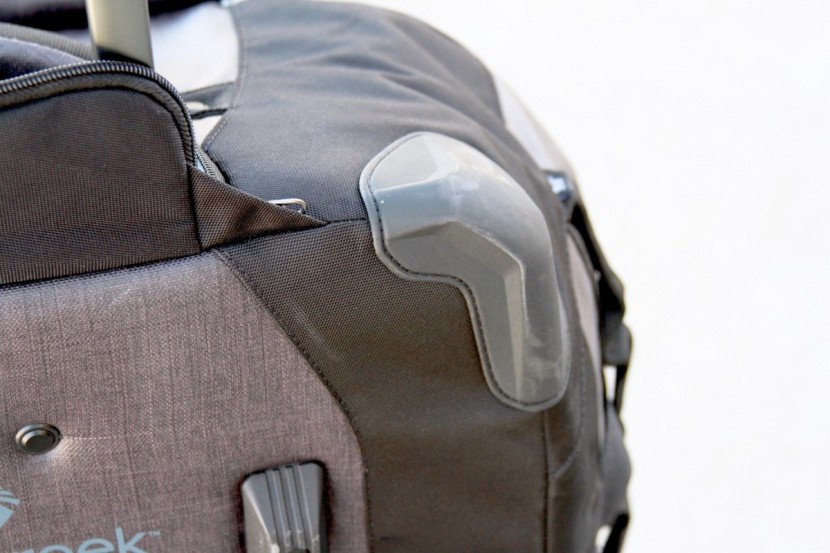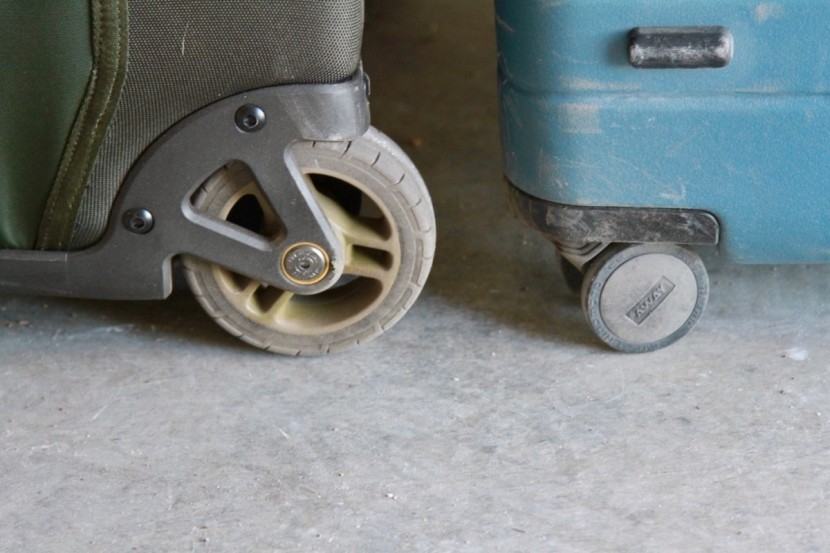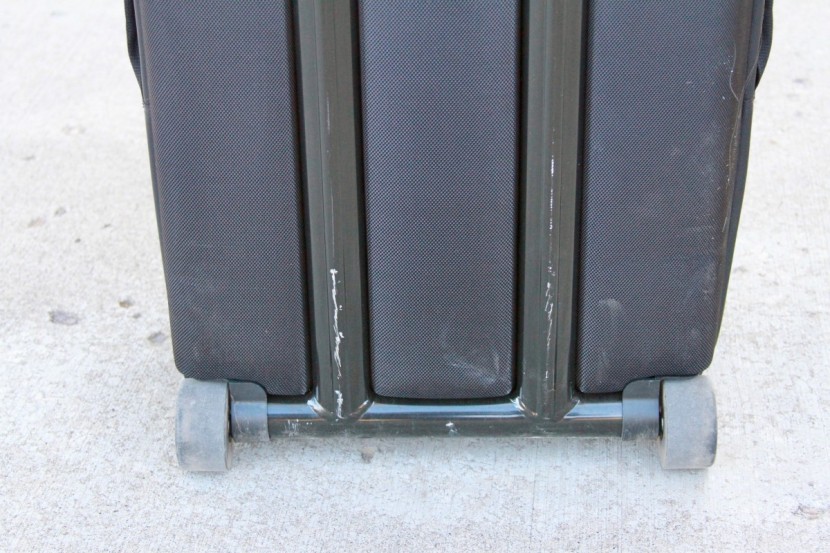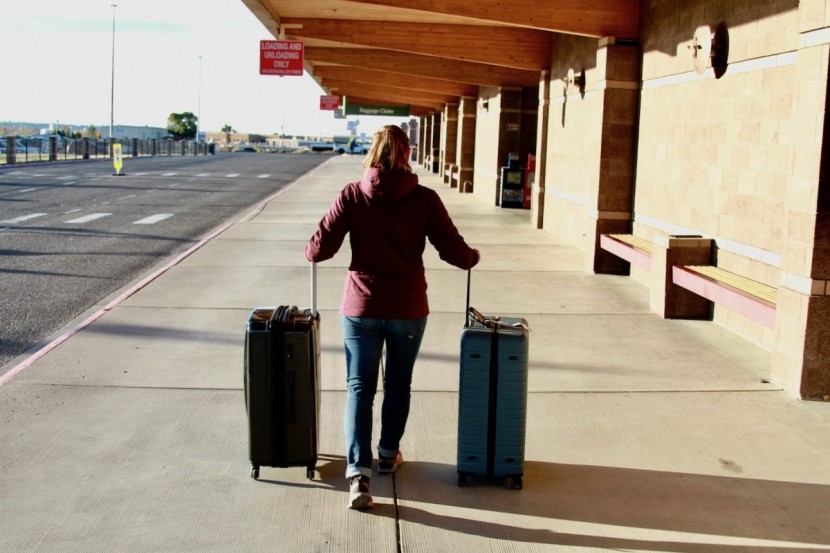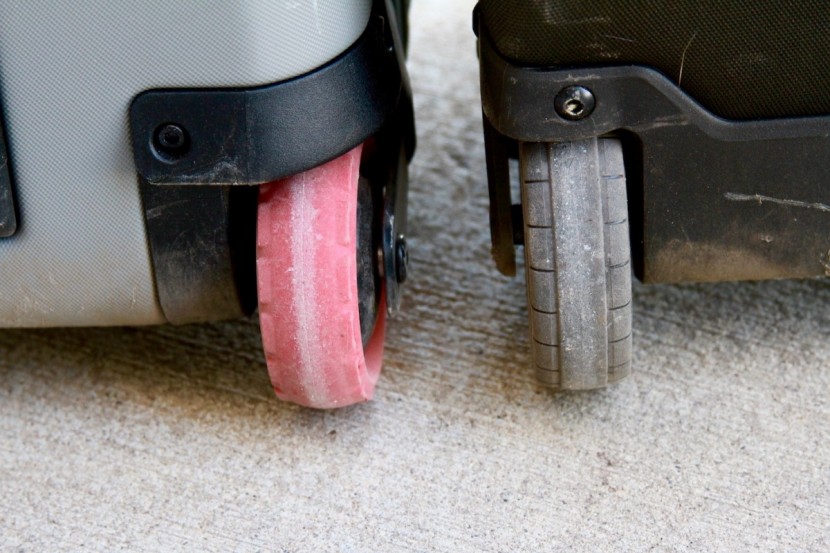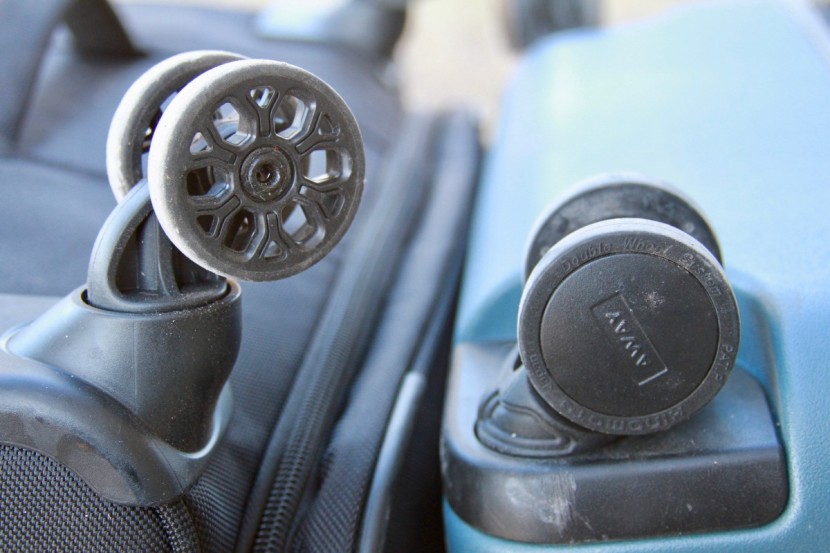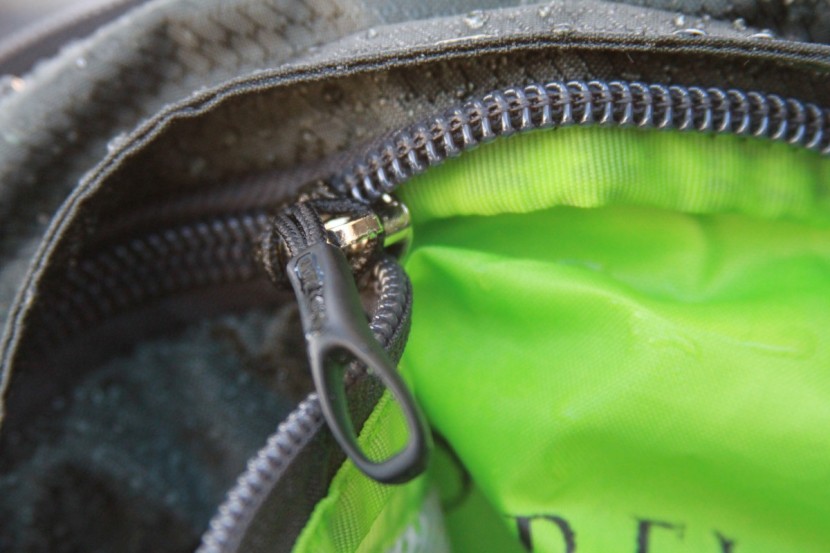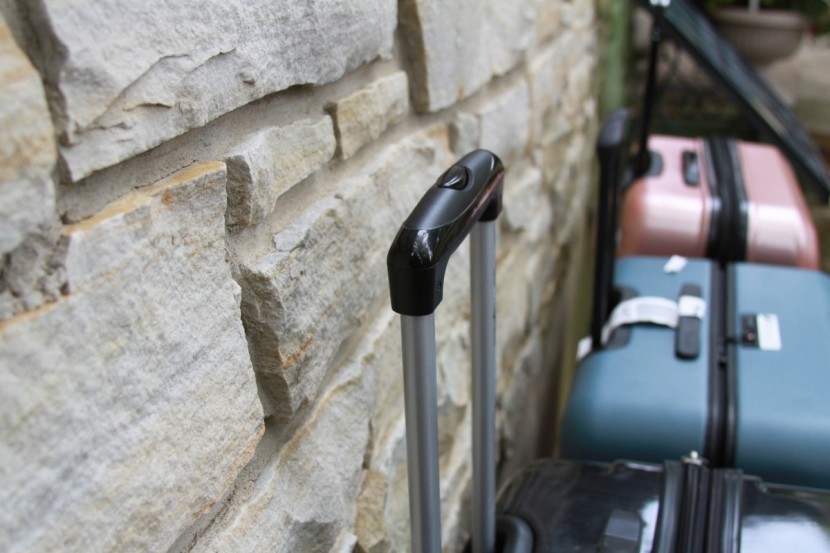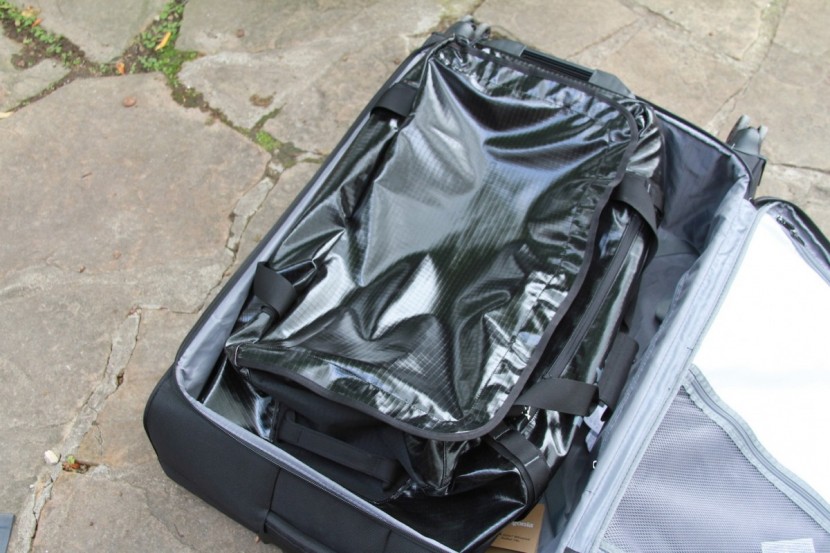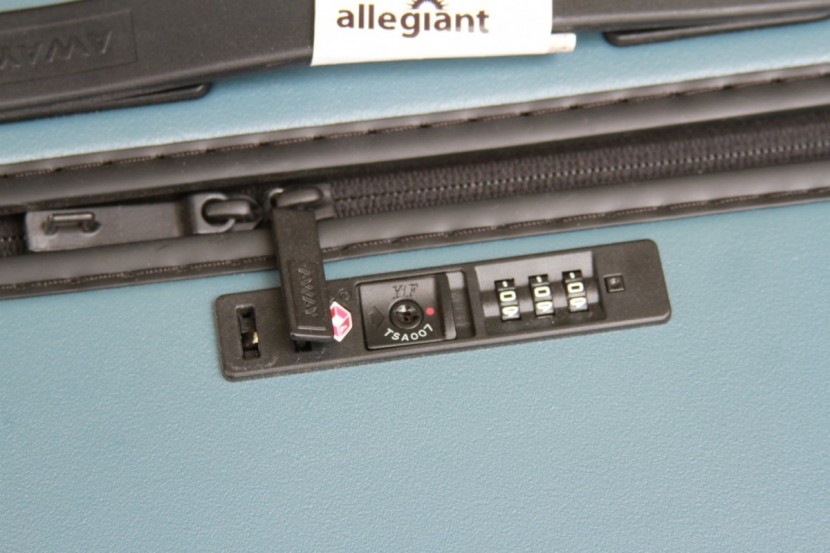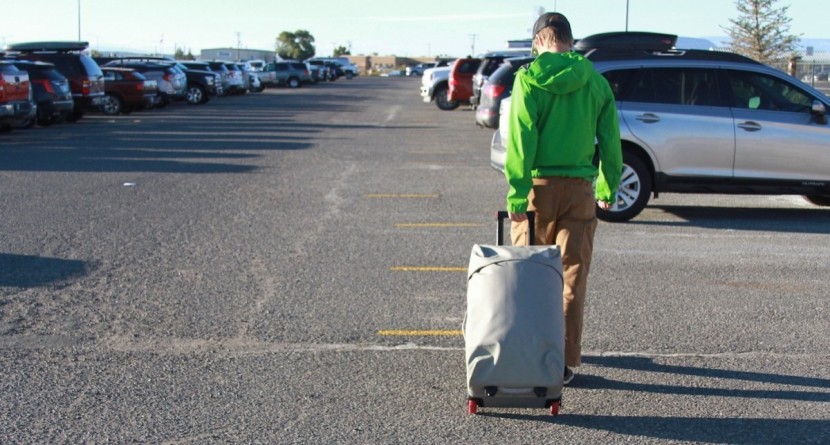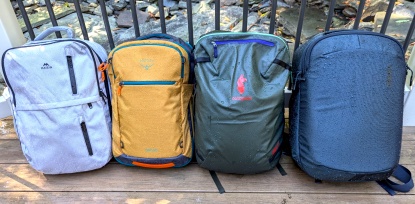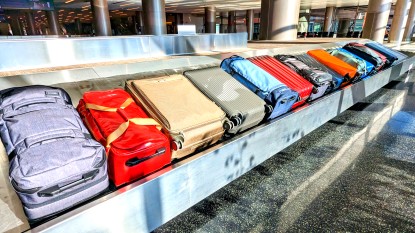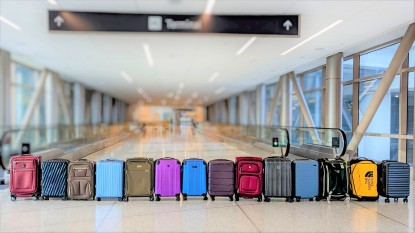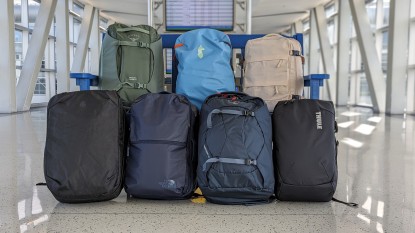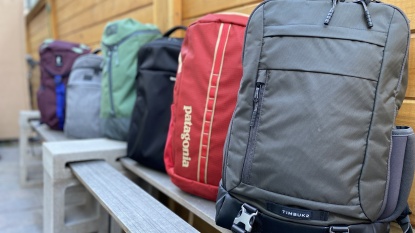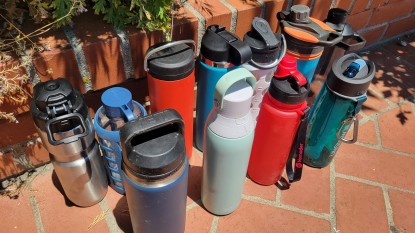The market for roller luggage, suitcases, and checked bags is chock full of options (don't get us started on carry-on luggage). Just walking through an airport, you'll find hundreds of different products staring you down. When you get online to explore this world, even more become apparent. To slim it down, we provide you with a few quick tips to help you assess options from the comfort of your own home. In this buying advice guide, we will arm you with vital knowledge to refine your eye for quality and help you avoid a lot of the crap that's floating around in this ocean of choices.
Should You Buy a Roller Suitcase?
This is the first question to consider on your quest for the perfect bag. While roller luggage is super convenient at the airport, it becomes less so when you enter a world littered with rocks, gravel, and other underfoot hazards. Rollers are great for those seeking a piece of luggage that'll organize things and get you to wherever you're staying with ease.
However, roller suitcases aren't the most convenient if you're planning expedition trips where you might need to strap your bag on the top of a roof rack or even a donkey. These rigid cases are difficult to carry when fully loaded unless they have backpack straps of some sort. They also take up quite a bit of room in a car and, given their rigid structure, can't just be “shoved in” like a duffel bag. As a result, many people prefer to travel with a backpacking backpack or a duffel for a more versatile carry experience. If you're planning a huge expedition where you might encounter a lot of rocks on the road (literally), a backpack or duffel might be a better option.
Related: The Best Duffel Bags of 2025
Considerations for Buying a Wheeled Suitcase
If you've determined that a wheeled luggage article is truly what you're after, it's important to consider some key items. First and foremost, is your budget. Second, assess important craftsmanship details such as case construction, wheels, zippers, and handles. Third, consider the organizational features and storage capacity you need. Lastly, think about the features you want. Taking these factors into account will help you find the best suitcase for your needs.
Budget
Knowing what you're willing and able to spend is important. In the luggage world, it's easy to overspend on a case that isn't reliable after being lured in by features and stylings that you don't need. Before you start your buying mission, set your budget. We've noticed that suitcases that are under a couple of hundred dollars are typically cheaply made. If you want something that'll last you for years and years, plan on dropping a little more than that. Given the competitive market out there, most companies seem to have continuous sales on their products or switch out colors and patterns regularly. Find a case that you love, and wait patiently for it to go on sale — or look for last season's colors.
Case Construction
There are several attributes to case construction that you need to know about before diving into the market. In this section, we'll talk about textiles and fabrics of hard and soft cases, protective bumpers, wheels, zippers, and water-resistant details. All the construction considerations is information you'd typically find under the 'specs' tab of the product description on any website.
Hard vs. Soft Case Textiles and Fabrics
There are some stark differences between these two types of cases. Be sure to choose wisely.
Hard Cases offer a reflective and stylish look that is quite alluring. However, the truth is that most are constructed of lightweight plastic materials that easily crack, scratch, and scuff. There are some more durable options out there, so if you do want to purchase a hard case, be sure to look for options that use heavyweight polycarbonate in the design. Many will state a lightweight polycarbonate, and you want to generally stay away from these as they are especially receptive to scratching. If possible, stay away from Acrylonitrile Butadiene Styrene (ABS) plastics. While they are durable and flexible, they are not as durable as polycarbonate.
Soft-shelled textile cases are a much more durable option than many of the hard case options we've seen. These can be thrown around after you've dropped them off at luggage claim, showing up with maybe some dirt, but generally unharmed. They are much more resilient to scratches, wear, and tear. That said, different fabrics are more durable than others.
Most cases are constructed of either woven nylon or polyester fabrics. Be sure when you look at the product specs that you see whats it's made of. Sift through words like “ballistic” to get an accurate picture of what these cases can handle. For example, you might find a description that says “150-D polyester” or “1680-D polyester”. The “D” stands for denier which is a rating for the strength of the polyester. The higher the number, the better. Avoid fabrics with a lower rating (anything in the low hundreds) as these fabrics aren't as thick or tightly woven. A higher number (in the high hundreds to thousands) is what you should look for if durability is your biggest concern.
Any product that integrates woven nylon is going to be pretty awesome. This is a highly durable material that offers excellent water resistance. While polyester can eventually fray and frizz after hard use, nylon fibers stay well intact. To the touch, nylon typically looks shinier and smoother, while polyester has a more woven look. Assess the locations of this material to see where the case exemplifies more durability.
Protective Bumpers
Another consideration to think of with exterior construction is the use of long plastic bumpers along the back of the suitcase. How many times have you been too lazy to pick up your fully-loaded suitcase and instead decided to drag it up a set of stairs? Plastic bumpers that extend from the top of the case to the bottom are what you should be looking for if durability is key for you. If the case only has the bumper mid-way up the back, it's not going to be fully protected.
If there is no bumper, know that the bag is going to take all the wear and tear of this damaging action. Some cases have metal bumpers which, despite seeming burly, will get scratched up more quickly. Hard, solid plastic is the best.
Also, look for reinforced fabric or plastic on the corners and bottoms of the suitcase. All this extra protection typically results in a less stylish bag, but if you think you'll be rough on your case, these reinforcements will help protect it and ensure more longevity in your purchase.
Wheels
Being critical with wheel construction is perhaps the best skill to have when looking at roller luggage. What kind of wheel assembly should you get? What should those wheels look like? What should you avoid? We'll answer those questions in this section.
Roller Wheels (two-wheel design) or Spinners (four-wheel design)
Here we outline the pros and cons of these two primary designs. You need to decide which you prefer.
Roller Wheels (two-wheels)
Pros:
- More durable and larger wheel construction
- Can roll up and down all surfaces more easily
- Larger wheels prevent the case from dragging
- Bags don't tip as easily and can be set down without rolling away on a slope
Cons:
- You can't push maneuver the bag as easily through the airport
- You always have to push or pull the bag
- A poorly designed option can flip if it's not stable or wide enough
Spinner Luggage (four-wheels)
Pros:
- You can maneuver the bag easily overall hard and clear surfaces
- More convenient airport and hotel travel
Cons:
- No lockers on wheels, so it can roll away if on a slope
- A poorly constructed bag tips over very easily if weighted incorrectly
- Wheels are typically smaller and can't move over larger obstacles easily
- These wheels are usually less durable
- When on poor terrain you may have to pull the bag as the smaller wheels are not designed to take on the entire load
As you can see, while the spinner luggage offers more convenience at the airport, it doesn't do as well on other surfaces. In general, we side with roller bags for ease of transport. However, if you're only going to be going from the airport to the hotel with your luggage, a spinner option isn't a bad idea, and many people love them. The choice is yours.
Wheel ConstructionThere are many different types of wheels out there. In general, if you have the opportunity to touch the bag before you buy it, flip it over and examine the wheel construction. If you are only looking at products online, be sure to look for these things.
First, size does matter when it comes to wheel construction. The larger the wheel, the better. You'll notice that spinner luggage has smaller wheels than roller luggage. However, in the world of spinners, look for those with a “two-wheeled” construction on a single axis versus just the single wheel design. This will offer more stability and a better ride.
Second, look at the wheel material. Those made of a thinner plastic will wear down easily and succumb to gouges by rocks, riddling transport with vibrations. Instead, if you can find it, look for those with a rubberized medium on the outside of the wheel — both of our Editor's Choice options offer this. Not only does it offer a much smoother ride on hard surfaces, but it's far more durable.
Third, check out the wheel housing. If you have the bag in hand, flip over the suitcase, and look at the housing. If you can see the ball bearings inside, or the wheel jiggles a lot, it's probably garbage. Any spaces or cracks that dirt or grime can build up in will result in a sticky wheel, even in the cleanest of airports. Also, look at how it attaches to the case. If it looks cheap, it probably is.
Zippers
This is another failure point for many suitcases. It's the worst if you buy a super expensive suitcase only to have the zipper fail after a few uses. In general, look for burlier, beefier zippers. The bigger, the better. Also, look at the zipper track itself. If the track looks reinforced or water-resistant, it's probably pretty durable. However, expect that it may be hard to zip up with just one hand. Also, pay attention to the zipper pulls. Find ones that are big and ballin'. This will make it easier to zip up your case when you're sitting on top of it after over-packing.
Pull Handles
Handle construction is also of the utmost importance. We've read reviews about those who have had the handles fail by over-flexing under pressure. You don't want to be in that situation! The handle on your suitcase needs to be super stable. There are two main types of handles: those with multiple levels of pull, and those with a single level. In general, we found that the sturdier handles have a single level of pull. This is because the construction isn't telescoping, so the handle arm doesn't need to get smaller as it moves up from its base to your hand. As a result, there isn't as much jiggle or play. There also aren't weak connection points along the shaft of the handle.
When considering what type of handle you should get, first look at the overall length and compare that to your size. Some shorter luggage pieces don't have a handle that is long enough for the tallest amongst us. Measure the distance between the floor and your hand, and compare that to the handle height (measured from the floor). Then look at the relative thickness of the handle and jiggle it. If there is a lot of movement, it's probably not as sturdy as those that don't move at all.
Storage & Organization
Determining the size and level of the organization you need in a suitcase is important. Many people prefer simplistic luggage with just a compartment or two for travel, while others like lots of features and many places to put their things. A suitcase that has a storage capacity of 60-100 liters is perfect for a weekend trip or even a month-long trip to Europe. Depending on the shape and depth of the luggage, it may be adept at storing bulky or non-bulky items. Those with a storage capacity that's bigger than this is a pretty massive case and a great option for moving overseas for a while or long bouts of time away. If you don't travel with much, you might also consider just a carry on item that has all the storage you need without the baggage fees.
In general, if you need to pack lots of bulky items, look for a case shape that is rectangular with volume. If clothing is all you're packing, you don't need as large a case. Organizationally, if you like to see all your things at once, opt for a suitcase with more features like zippered mesh pockets or supplemental bags. Alternatively, you can opt for something that is more like a roller duffel if you prefer to simply throw things in without a second thought to the organization.
The business traveler may be looking for a suitcase that has a suit or dress holder that will keep their articles wrinkle-free. While this is a great feature, it's important to note that most hotels have provided irons and boards, so this may not be super important.
Features
Any savvy frequent flyer knows that all the fancy features are not a necessity when traveling. Some people love the idea of a built-in lock on the luggage, but when customs has to get into your bag, they'll break it open without hesitation, leaving you with a broken feature that's no longer useful. You're better off just adding your own mini-lock if this is a concern.
How about additional bungee cords to affix a helmet or extra bag? Some suitcases offer this option, but we ask the question of why? While you might appreciate this feature, be sure that you're only really paying for those that you need, and not the ones you think you need. Typically, simpler is better.
Conclusion
The suitcase luggage market is vast. Diving into it may make you feel as if you're sinking in choices. However, we hope that this article helps you filter out the quality from the crud. Remember, when looking at suitcase selections to try to move past that part of your brain that gets wide-eyed and excited when it sees something beautiful and sparkly. Instead, take the time to evaluate its materials and where it can go on your next adventure.

